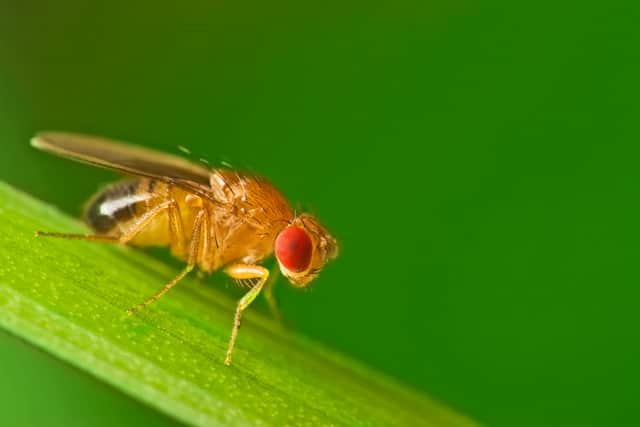Fruit flies predicted to be at an all time high in August 2023 - how to prevent them
This article contains affiliate links. We may earn a small commission on items purchased through this article, but that does not affect our editorial judgement.
and live on Freeview channel 276
Summer is officially here, with scorching temperatures continuing to grip the UK. However, when warmer weather arrives, insects are more likely to appear in the house and cause a nuisance, and pesky fruit flies prove to be the biggest culprit.
In a new study Alliance Online, who supply insect control devices, uncovered that there is an average of 29,000 Brits searching for “how to get rid of fruit flies” each month. Every year, searches for this question start to rise in May indicating that fruit flies increase in the home around this time.
Advertisement
Hide AdAdvertisement
Hide AdAlliance Online revealed that they have already seen that in 2023 Google searches for “how to get rid of fruit flies” are up by 19%, indicating that if trends continue, this year will be the worst to date. With that in mind, Rachael Kiss from Alliance Online has provided five preventative steps Brits can take now.
So, how can you get rid of fruit flies this summer? Here’s the top tips from the experts at Alliance Online.
Top tips for preventing fruit flies
Alliance Online have released tips to encourage Brits to act now to reduce the risk of fruit flies in the home this summer.
1. Keep surfaces clean and sanitised
“Keep your surfaces clean and sanitised to prevent fruit flies, and any other unwanted insects, who will be attracted to any food remnants, however small they are. Fruit flies usually appear in the kitchen when food is being prepared and served, especially common during the summer months when the doors and windows tend be left open.”
Advertisement
Hide AdAdvertisement
Hide Ad“Take out the rubbish bin more often than usual ahead of fruit fly season, so food waste doesn’t end up rotting - the perfect attraction and breeding ground for fruit flies.”
2. Store fruit and vegetables properly
“Fruit flies are attracted to the ripeness of fruit and vegetables and the smell of fermentation, so seal and refrigerate food and keep it in an airtight container. There are numerous airtight containers currently on the market and, thankfully, they aren’t too expensive, so it’s worth investing if you’re sick of fruit flies.”


3. Traps and natural repellents
“The most used, and arguably the most successful, fruit fly prevention tactics are traps and repellents. Traps and repellents are easy to set up as you will likely already have all the ingredients ready at home. For a trap, fill a small bowl or jar with apple cider vinegar and a few drops of washing-up liquid. Cover the container with plastic wrap and poke some small holes to entice the flies - this works with red wine too!”
“Natural repellents are strong deterrents for fruit flies. The strong scent of dried basil, mint and bay leaves can be simply left where you tend to find fruit flies which should repel them from the area. Alternatively, mix water with essential oils like lemongrass, lavender, or eucalyptus which can be sprayed as a natural repellent.”
Advertisement
Hide AdAdvertisement
Hide Ad4. Keep drains clean
“Fruit flies can breed and lay eggs in the organic matter in damp areas like drains. Clean your drains with a mixture of vinegar and baking soda to eliminate any buildup and deter fruit flies from breeding there. If you don’t have baking soda or vinegar, boiling water could work just as well.”


5. Use a fan
“Using a fan is a preventative measure to deter fruit flies. Fruit flies are weak fliers and dislike strong air currents. By placing a fan near where fruit flies congregate, you can create an environment with increased air circulation which makes it more difficult for the fruit flies to fly and land on surfaces.”
“In addition to the benefit of a fan cooling down your home during hot weather, the constant movement of the air created by the fan can disorient fruit flies and makes it a challenge for them to navigate and find food sources.”
